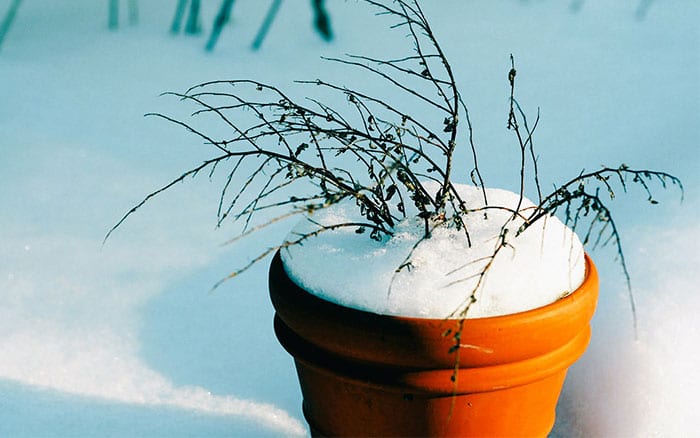There are steps that can be taken to help prevent your pots from cracking when old man winter whips through your garden.
Keep my ceramic pots from cracking in the winter.
They re hardy versatile and sturdy enough to hold everything from a sprouting flower to an aging ficus.
Ceramic and clay pots are classic staples in gardens throughout the world.
Much like terracotta and clay pots it is not a good idea to store ceramic pots outside in the winter.
The easiest solution is to keep large terra cotta planters elevated year round.
First remove the plants growing in them and dump out the soil.
Ceramic being even more brittle than terracotta the slightest crack can quickly split the pot in two.
If you try to move the pot later it will crack or start to fall off in sheets.
Pots with unglazed interiors can absorb moisture and crack during the winter when water.
Plus ceramic has no capacity for expansion and will likely crack as the soil it contains freezes and expands.
These ceramic troopers are meant to last a lifetime and are readily available at.
Definitely move ceramic containers indoors for the winter.
Storing ceramic containers for winter.
Since good pots can be pricey especially the big ones you don t want to leave them stacked beside the tool shed or standing in the garden where the weather can damage or ruin them.
At a minimum elevate planters during winter using decorative terra cotta planter feet or bricks but don t block drainage holes.
While the coating on ceramic pots keeps the moisture out for the most part small chips or cracks will still allow some in.
You can sometimes find styrofoam pots.
The goal is to eliminate the possibility of water being absorbed frozen and thus causing the pot to crack.
They are a simple and effective way to hold and separate plants while also providing the right amount of drainage for them to thrive.




























